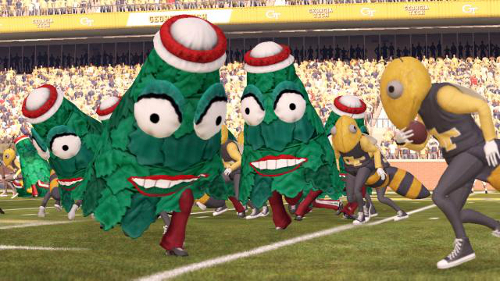Statements from NCAA Officials Show Level of Concern Over Player Likeness Lawsuit

Demonstrating just how traumatic an unfavorable outcome in the player likeness lawsuit currently making its way through the legal system could be, a recent court filing suggests that the lifting of the current rules on amateurism would result in some schools exiting Division I or Bowl Subdivision football. University of Texas, Wake Forest, Utah State, and the California State University system all contributed to the filing by expressing that the need to pay players would make it unlikely that athletic funding would then be able to support all the sports required and that it would also make it difficult to comply with Title IX.
Big Ten commissioner Jim Delany is even claiming that an outcome in the player likeness lawsuit that forces payments to players would result in the conference de-emphasizing athletics. While this is somewhat hyperbolic – there would still be far too much money to be made to take such an action – it does shed a light on the frame of mind the NCAA, CLC, and EA Sports have as they prepare for a possible negative judgment or agreement to settle.
The wave of momentum is certainly with the plaintiffs at this point. Many legal analysts believe a decision will go in their favor if it gets that far. Doing so would have huge impact on college athletics, as expressed by the NCAA reps in the filing and their public statements, but also on any video game representations.
EA Sports would likely shut down its NCAA Football series after being forced into paying a huge judgment and evaluating the lack of revenue potential going forward. The series has already seen dwindling returns over the years with little opportunity for growth. No other company would consider taking on any college-based video game if payment to players would be necessary on top of all the development costs. College basketball is already seen as a poor investment – which is why no company has made a game in over three years – and that is without even having to pay the players. The increase in sales that would come from having real players in a college game would not come close to the losses from paying out to those players.
The player likeness lawsuit against the NCAA, CLC, and Electronic Arts is the culmination of two high profile filings that were combined as led by Sam Keller and Ed O’Bannon. It alleges improper use of player likeness through various forms of merchandise and media including video games in which the parties in question conspired to avoid paying players for their rights. Some interesting details and claims regarding the case at hand were revealed when EA was reentered as a defendant after initially being dismissed.
EA has won a previous case regarding player likeness with the courts ruling video games are artistic works rather than commercial speech and therefore protected by the First Amendment. The Supreme Court in 2011 established forms of media, producing expressive works of art, are not subject to judgments based on incorporating someone’s name or likeness.
Recent uncovered emails have shown that NCAA representatives were well aware that players in games were based off real-life players. At one point the NCAA and EA had nearly reached an agreement to have actual player names included in the products. The EA Locker / Roster Share feature was a fallback option.
This consolidated case in California looks as though it will be going to trial and ultimately be the determining factor of how the NCAA proceeds in the future handling broadcasting rights, merchandising, and video games. Should a negative result come down, which one analyst has pegged as being a potential loss of $1 billion for EA, it would likely not just end the NCAA Football series but also with it any realistic possibility of college sports games being made in the future. The NCAA is currently seeking to block classification as class action. The trial now is slated to begin June 2014.
